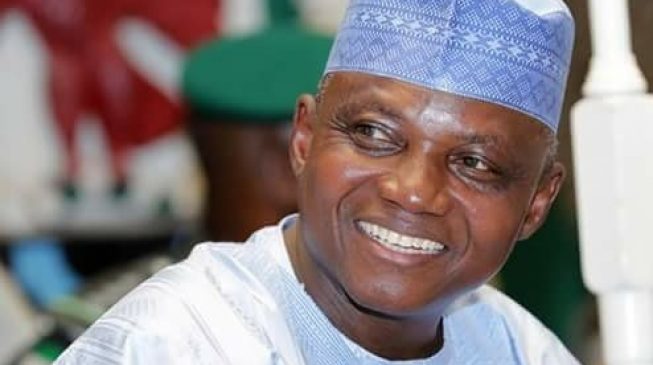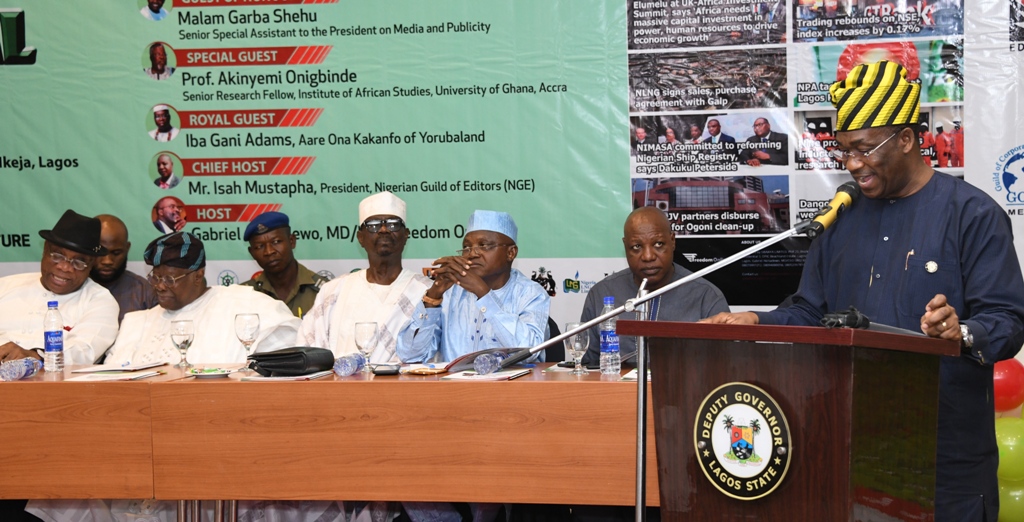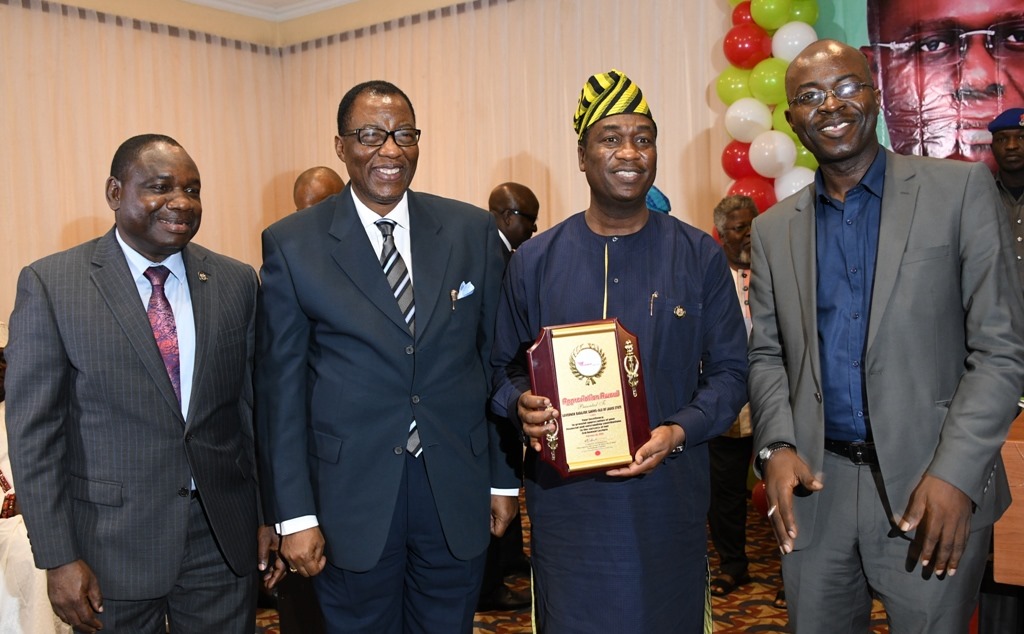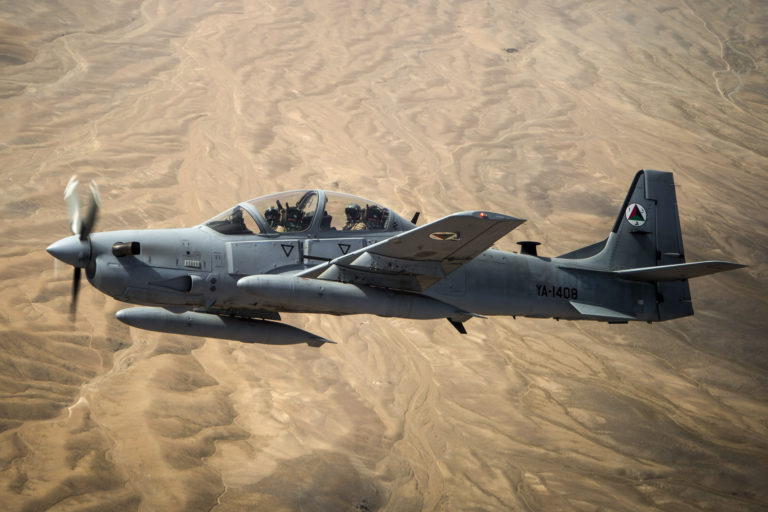Dipo Kehinde/
After four years of chagrin and diplomatic row over human rights violation and sales of military hardware, Nigeria is expecting 22 Aircraft with 17 Super Tucano from the United States of America to boost the strength of its army against Boko Haram insurgents from next month.
The information was released today by the Special Assistant to President Muhammadu Buhari on Media and Publicity, Malam Garba Shehu. He spoke after attending the Freedom Online newspaper’s 3rd Annual Lecture with the theme – Nigeria: Foundation, Fundamentals, Future, at the Sheraton Hotel, Ikeja, Lagos.
He said, “As I speak to you now, the military is going to commission about three battalions in March, April. We have thousands of new military hardware coming in, paid for by the Nigerian Government’s extra-budgetary allocation, a special funding; the Air Force is getting a lot more aircraft; we have bought 22 for the Air Force; about 17 Super Tucano bought from the United States of America, so the military is being equipped in readiness to face whatever challenges that’s there to face. Nigerians should be assured that this government will not fail in its duty to defend lives and properties.”

Nigerian citizens and the military have suffered heavy casualties this year as Boko Haram embarks on a fresh offensive.
Pentagon had in November 2018 awarded a $329 million contract to Sierra Nevada for 12 A-29 Super Tucano light attack aircraft for the Nigerian Air Force, more than two years after the deal was first mooted by the administration of President Barack Obama in May 2016, but was then stalled by Obama over concerns about human rights violations after the Nigerian Air Force ‘mistakenly’ bombed a refugee camp in January 2017, killing more than 100 refugees and aid workers.
President Donald Trump’s administration decided to re-activate the deal in April 2017.

NewsmakersNG had exclusively reported on December 17, 2019, that the American government threatened to refund the $469.4 million that Nigeria had already paid for the aircraft to be delivered this year because of the Federal Government’s continued detention of journalist and activist, Omoyele Sowore after a court had ordered his release.
Sowore, a former presidential candidate and founder of Sahara Reporters online news agency who lectures in an American university was arrested with a student activist, Olawale Bakare, on August 3, 2019, by the Department of Security Services (DSS) in Nigeria for alleged treason after organizing a protest tagged RevolutionNow.
The DSS held him for 123 days, even after a Federal High Court in Abuja ordered that he should be released on bail. He was eventually released and dramatically rearrested the next day inside a courtroom on December 6 in the presence of a judge. He was then kept in DSS custody without any detention order of court or arrest warrant.
True to NewsmakersNG’s story, Sowore was finally released on December 24, 2019, after six U.S. Congressmen, including Chuck Schumer, Cory Booker and Bob Menendez, sent a strongly worded letter to Nigeria’s attorney general, Abubakar Malami. They stated that they were deeply concerned that established legal procedure and the rule of law were not being followed.

The Super Tucano jets are arriving ahead of the May 2024 date earlier scheduled.
The contract signed with the U.S. included ground training devices, mission planning and debrief systems, spares, ground support equipment, alternate mission equipment, and contractor support, including five field service representatives for outside of continental U.S. for three years.
U.S. A-29s are built in Jacksonville in a partnership between Sierra Nevada Corporation and Brazil’s Embraer, the designer of the aircraft.
According to American defence sources, the Super Tucano is a durable and flexible aircraft designed for counter-insurgency and close air support roles. It can also be used for reconnaissance missions in low-threat environments, and for pilot training, it is capable of operating from unimproved runways.
The aircraft can be equipped with advanced avionics, an electro-optical, infrared and laser targeting system, as well as communications and datalinks to enhance its combat capability.
The Super Tucano is relatively cheap to buy, fly and maintain, costing around $18 million each depending on configuration and about $1,000 per flying hour, according to The Diplomat. It is powered by a variant of the world’s most popular turboprop engine – the Pratt & Whitney Canada PT 6 – rather than a jet.
According to the Sierra Nevada, the A-29 Super Tucano has been selected by 14 air forces on three continents and has logged more than 320,000 flight hours and more than 40,000 combat hours.
An estimated $593 million sale of A-29s for Nigeria was approved by the U.S. State Department in August 2017 and included 12 A-29s, weapons, training, spare parts, aviation and ground support equipment, hangar, facilities, and infrastructure.
The Defense Security Cooperation Agency said the sale was to support “Nigerian military operations against terrorist organizations Boko Haram and ISIS West Africa, and Nigerian efforts to counter illicit trafficking in Nigeria and the Gulf of Guinea”.
There have been a series of controversies surrounding the Super Tucano aircraft deal including that of President Buhari’s withdrawal of $1 billion from Nigeria’s Excess Crude Account for military equipment purchases without the approval from the last national assembly.
Watch Video:







